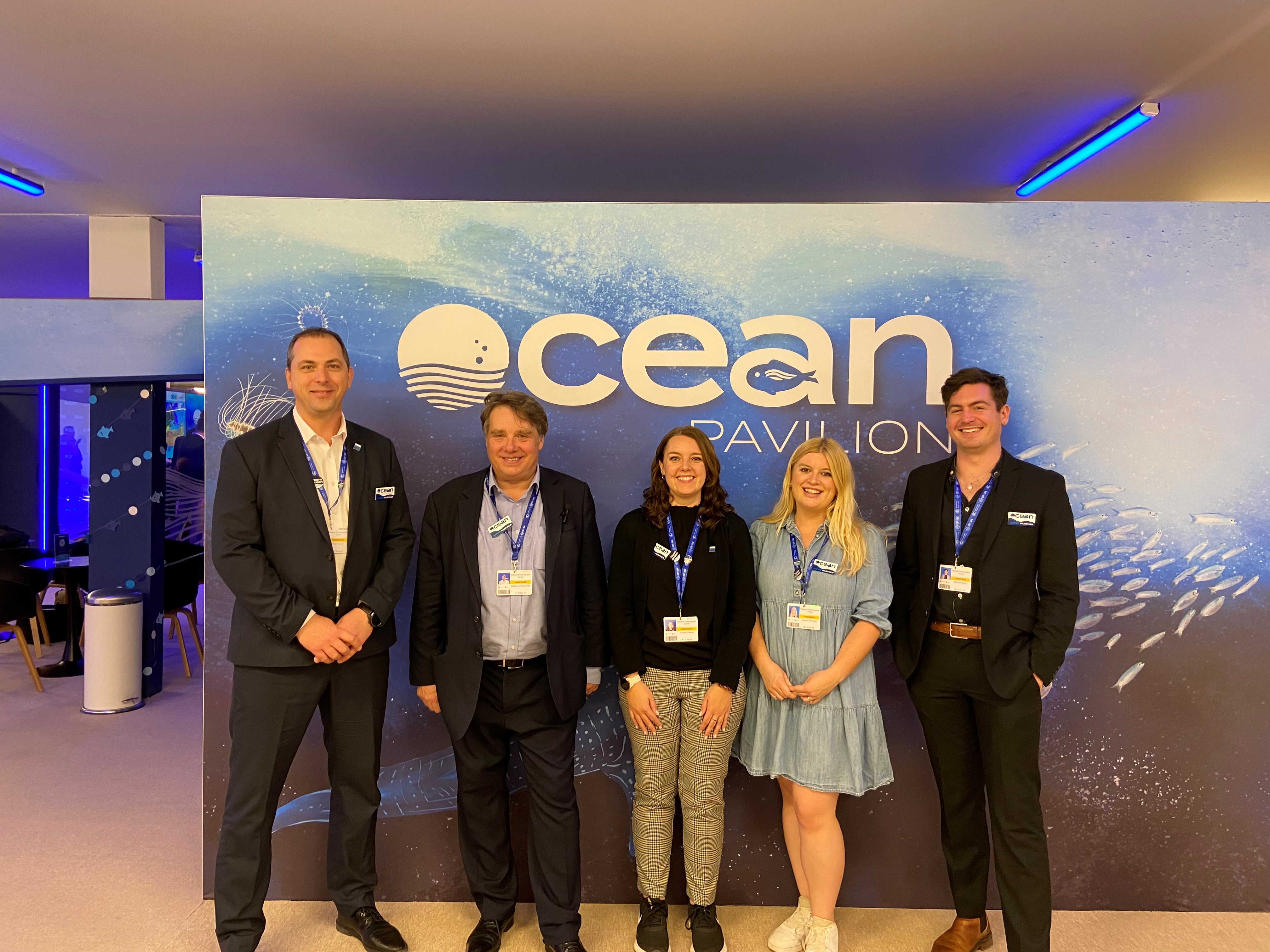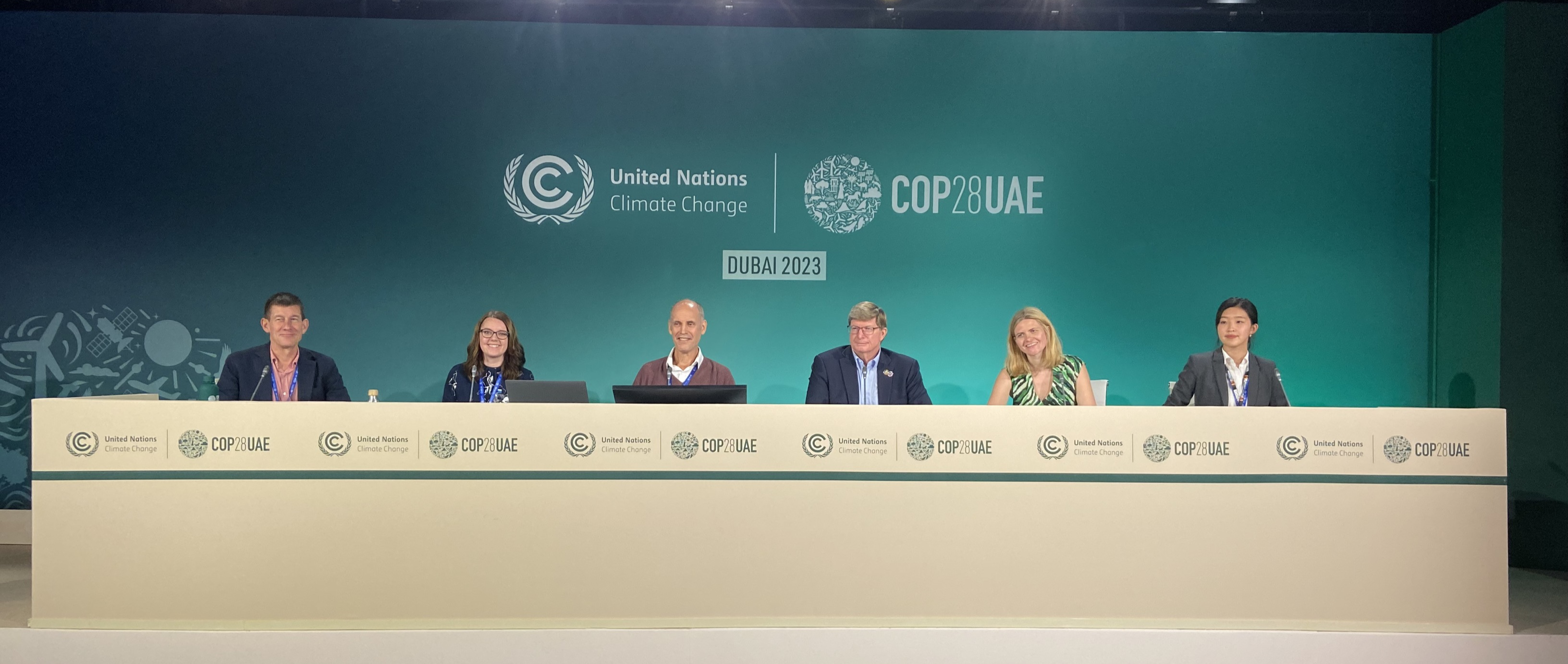Author: Dr Chelsey Baker, Ocean Biogeochemical Model Analyst at NOC and member of NOC’s COP28 delegation.

I was lucky enough to be one of the National Oceanography Centre week 2 delegates at COP28 in Dubai. I am an early career research scientist who researches the ocean carbon cycle. More recently, I have been working on assessing and evaluating marine carbon dioxide removal approaches which are being explored as climate mitigation solutions. Whilst we need drastic emissions reduction first and foremost in order to say below 1.5°C in line with the Paris agreement there will be a need for carbon dioxide to be removed from the atmosphere.
Expectation 1: The scale of COP
My main expectation was that COP28 would be overwhelming and perhaps daunting – previously the biggest conference I had attended had 10,000 attendees and COP28 had >100,000 registrants. The first thing that has to be mentioned was the shear scale of COP28! It’s almost indescribable – there was a constant programme with >100 pavilions and with 1000’s of events happening during the two-week conference.
We spent most of our time in the Blue Zone which hosts world leaders, politicians, scientists, advisers and industry but there is also a Green Zone which is open to the public and industry. We were based in the Ocean Pavilion, in which NOC is a collaborating partner, and it was great to meet, network and discuss key ocean issues with other like-minded people on ‘Team Ocean’.
Expectation 2: Hot COP Topics

I also expected that marine carbon dioxide removal would be one of the hot topics at COP28 as there has been a lot of traction and interest in different approaches, which was why I was really keen to attend. It was indeed a hot topic but even I was surprised that marine carbon dioxide removal was mentioned in almost every session in the Ocean Pavilion, indicating the scientific, industry and policy communities’ interests in relation to it.
Whilst I was there NOC participated in three events relating to the topic. First, was a press conference I participated in highlighting new Greenhouse Gas Removal Pathways, such as marine carbon dioxide removal, and stressing the need for rapid and rigorous scientific assessment of different approaches. This was the first event we went to after only a few hours sleep (having landed only 12 hours prior to the event). I think it went well and it was a very interesting experience whilst providing an opportunity for some very ‘official’ looking photos. The next event was a presentations and panel session in the Ocean Pavilion and last but not least, an official side event led by NOC and the World Ocean Council both highlighting the need for scientific assessment and greater understanding of the different proposed approaches.
Expectation 3: The impact of scientists at COP

Before attending COP28 I expected to feel that the impact scientists have by attending COPs would be quite small. However, I felt it was important that we do attend to try and make our voices heard and to raise the profile of the important role of ocean, the services it naturally carries out for society, and why we need to continue furthering our understanding of the ocean. It’s hard to know the impact the sessions we participated in had but it’s important that scientists bring their expertise to such events and show up for the Ocean to aid in bringing awareness both to how it’s being impacted by climate change and how, with robust scientific evidence, it may provide solutions to the climate crises in the critical decades to come.
All in all, it was a wonderful and interesting experience that was equally inspiring and concerning and the experience has bolstered my belief that it is more important than ever that scientists make our voices and our science heard, especially by those who are keen to overlook it. I’m very grateful that I was given the opportunity to attend and to represent NOC at COP28, it’s definitely been a career highlight.